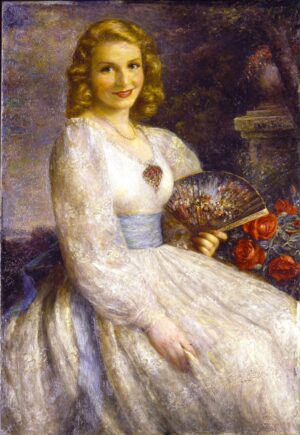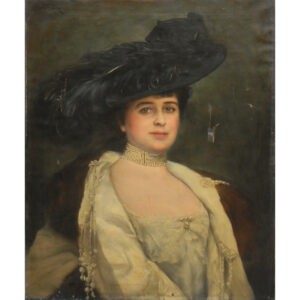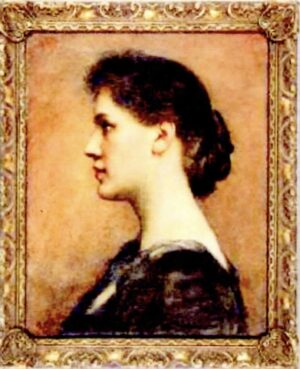
SMITH, Major Orlando J.
Location:
Present Whereabouts Unknown.
The sitter was born on June 14, 1842 in Terre Haute, Indiana. He fought in the Civil War, and was wounded near Atlanta, Georgia on August 3rd, 1864. He was editor of the Terre Haute Mail, the Terre Haute Express, the Chicago Express and was the Founder of the American Press Association in 1882, whose General Office in 1910 was at 225, West 39th Street, New York. He lived at Dobbs Ferry-on-Hudson, New York. He was also an early 20th-century American philosopher. Smith was an avowed agnostic who still sought to understand meaning as the ultimate intelligence would, if such existed. He published A Short View of Great Quests (1899), The Coming Democracy, Balance the Fundamental Variety (1904), The Agreement Between Science and Religion (1906) and Eternalism: A Theory Of Infinite Justice (1902). He died in 1908.
The following letter written by his son Courtland Smith (March 7, 1884 – August 1970) dated Sunday, January 15, 1911 and written from the offices of the American Press Association, is stuck in the artist’s papers:
‘My dear Mr. Ury –
I want to tell you – and this is not alone my opinion but that of many who knew Major Smith best – that the portrait not only does justice to the subject but is as beautiful a painting as I have ever seen. I was adverse in having a portrait painted, even by you, for I felt it was beyond human power to make one that would entirely satisfy us in our memory of Major Smith. I did not ever faintly think that one could have such marvellous and wonderful ability as that which you have shown us you possess. I know that you put your shirt into the work on the portrait, and for that we are deeply indebted to you. But beyond all that we are indebted to you for as wonderful a portrait as I think has ever been painted. I personally feel most indebted to you and will continue to feel so for all time. And in the future, if I can be of any service to you, you have only to let me know. When I say that the portrait is as beautiful as our memory of Major Smith, you can appreciate how entirely it satisfies us.
Sincerely yours, Courtland Smith.’




